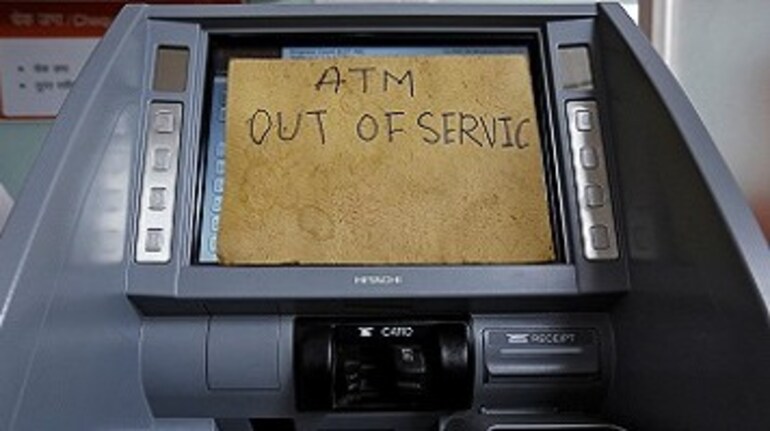
Anil RegoRight HorizonsSalil Shah, a small businessman who had just landed back in India on November 15th from his visit to Dubai, was shocked by the scene on the streets of Delhi. There were long queues outside ATMs and most of them were already out of cash by 10.30 in the morning. Getting into any bank was virtually impossible as there were serpentine lines outside all banks and your waiting period would have been 5-6 hours. Even after that there was no assurance that cash would be available to disburse. In all his years, Salil had not seen such a terrible situation. While he broadly appreciated the idea of cracking down on black money, he was not too sure how he would be able to manage his home expenses and the running expenses of his office. He had Rs.20,000 in his home emergency reserve, but they were all in denominations of INR 500, which was already not being accepted by most outlets. So he consulted his mentor, his former college professor Dr. Shastry on whom he had normally counted for good counsel. Here is what his professor prescribed; and it is of utmost relevance to each and every Indian who is fighting this cash crunch in India…Proposition 1: Make it a point to conserve cash and cut expenses to the extent possible…Dr. Shastry’s first advice was to get tight-fisted with his expenses. Remember, in times of a liquidity crunch, the best answer is to conserve cash to the extent possible. This has to be done in two ways. Firstly, review your household budget and identify regular expenses that can be reduced. Expenses like eating out, new clothes and weekend outings can always be postponed as they eat away at your cash. Secondly, try to use cash as little as possible. Try to negotiate with all your suppliers that payments will be made only through cheque or NEFT/ RTGS transfers. According to Dr. Shastry, this liquidity crunch should be used as an opportunity to move as much towards digital money as possible.Proposition 2: Use your old notes at relevant places wherever permitted…Even though the old notes of 500 and 1000 INR denominations have been scrapped, the government has permitted to use them at select places. For example when you are fuelling your car, buying medicines at the pharmacy or booking tickets people are willing to accept the old notes. In the case of Salil, as he is sitting on old notes to the tune of Rs.20,000 he must make it a point to pay for all these expenses only with old notes. You can also surrender your old notes at the bank but currently the situation is tight and it may require a lot of time and effort in case you want to convert a larger amount. The more intelligent thing to do would be to use up the old notes where they are still being accepted.Proposition 3: Digital wallets are much more popular than you think…In the last couple years, digital wallets have been permitted and have caught up quite rapidly across India. Today, small shopkeepers and even cab drivers are willing to accept payments through these digital wallets. It is quite simple and can be executed by anyone with the help of a mobile phone. As Dr. Shastry says, this could be the tipping point for the proliferation of digital wallets. In fact, you can go a step further and also educate your local grocer and baker to register to receive money via digital wallets. It will not only address their problem but also enable you to make all these small payments using your digital wallet.Proposition 4: Try to negotiate with suppliers for longer credit periods…This is applicable to businesses but in many ways to your households too. As a businessman you have credit lines from your suppliers, contractors and other service providers. Negotiate with them to extent the credit period and also negotiate with those whom you are dealing on cash-and-carry to extend favourable credit terms to you. Even for your household purchases, your neighbourhood shopkeepers will be more than happy to extend credit terms to you. After all, they too need to do business and will be happy to give credit where you have a long relationship with them.Proposition 5: You can use this opportunity to activate your defunct accounts…This is normally a problem most of us face. We open bank accounts and then do not bother to do regular KYC or operate the account regularly. This leads to the account becoming defunct. Most banks today are offering easy process and regulations to re-activate the account. Remember, the limits prescribed by the government are on a per account basis and having more accounts will enable more of your family members to operate the banking transactions and smoothen liquidity. Proposition 6: Use your plastic to the extent possible…We have all heard of the demerits of going on a credit binge with your credit cards. Currently, the government has foregone all credit card charges till the time the liquidity situation is under control. This is a golden opportunity to pay using your plastic. Instead of shopping in bits and pieces from small stores, try to bunch your purchases at the supermarket and pay using your card. Remember, card charges are waived on both debit and credit cards currently.
Discover the latest business news, Sensex, and Nifty updates. Obtain Personal Finance insights, tax queries, and expert opinions on Moneycontrol or download the Moneycontrol App to stay updated!